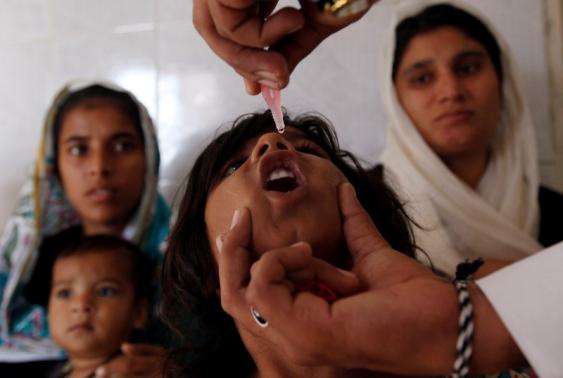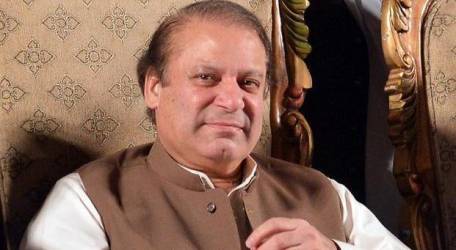Anti-polio program in Pakistan
Critics Call Pakistan's Polio Eradication Policy a Disaster; Prime Minister Says Plan Will Succeed

Experts contend there is a reason for the sharp spike in polio cases in Pakistan this year: Government mismanagement. "Pakistan's polio programme is adisaster," the Independent Monitoring Board, which advises agencies fighting polio, said in a recent report. "It continues to flounder hopelessly, as [the polio] virus flourishes."
"It's frustrating. Eradicating polio is not rocket science," said Elias Durry, head of the World Health Organization's polio campaign in Pakistan. "If we could have three to five months to have really good campaigns, then we could get rid of this disease. We have been doing half-baked campaigns in high risk areas."
Pakistan’s Prime Minister, Nawaz Sharif (pictured), however, has expressed confidence that Pakistan’s government has the capacity and is taking suitable measures to soon make Pakistan polio-free and help stop the spread of the wild polio virus.

“We owe this to our people, our children and the world community,” Sharif said in a message on World Polio Day (October 24). Terming polio a global scourge with the potential to cause widespread damage, the prime minister told the Daily Times newspaper that eradicating polio is a humanitarian issue requiring supranational preventive and remedial action.
He said his government is aware that the number of children paralyzed by polio in Pakistan is the highest in a decade. Pakistan has reported 206 cases of polio so far this year, compared to 43 at the same time last year. Military strife, opposition by religious leaders, the killing of vaccination workers, and internal displacement of citizens have made vaccination of children especially difficult. Sharif said his government has devised a National Emergency Action Plan that is aimed at eradicating polio and that is fully funded until 2018. “Our anti-polio efforts are based upon a Pakistan-specific, contextually designed implementation strategy."